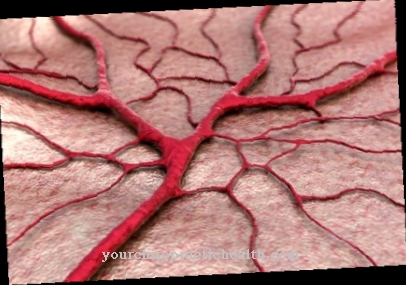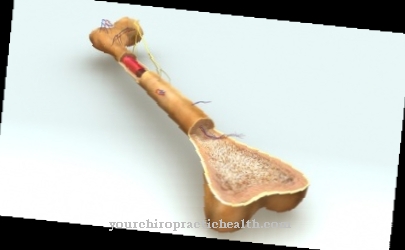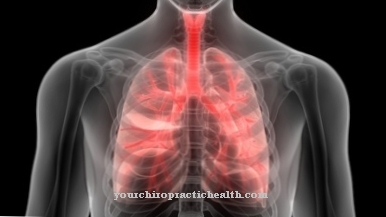It has been known since the end of the 20th century that the brain also performs in adulthood Neurogenesis is able to form new cells. Neurogenesis is understood to mean the formation of new nerve cells from precursor and stem cells, which takes place both during embryogenesis and in the adult nervous system.
What is Neurogenesis?

Neurogenesis during the embryonic period encompasses the development as a whole, beginning with the secretion of the neural crest cells, the formation of the first vesicles in the brain, to the differentiation of the central nervous system, including the functional supply of the organs, cells and tissue in the organism.
Neurogenesis begins with the formation of the neural tube, which separates from the ectoderm in the early stages of embryogenesis, which in turn is known as neurulation. This lays the foundation for the development of the spinal cord, brain and nervous system.
The upwardly oriented parts of the neural tube give rise to the first embryonic precursor structures of the brain, so-called cerebral vesicles, which later form the forebrain, midbrain and hindbrain. This is where the structure of the spinal cord and the central nervous system are built up, as are the sensory organs such as eyes, ears and nose.
A reservoir of stem cells is still present in the adult brain. For a long time, researchers assumed that the formation of new nerve cells in the central nervous system no longer takes place. That has been proven wrong. Stem cells multiply, nerve cells are formed even in old age, whereby the process depends on physical and mental activity. Adult neurogenesis is regulated in this way.
Function & task
There are two brain regions, more precisely the hippocampus and the subventricular zone, in which neurogenesis also takes place in the adult brain. The hippocampus enables memory and learning processes in humans. If the area is disturbed, neurodegenerative diseases occur. Such are depression or anxiety, but can also lead to Parkinson's.
Adult neurogenesis takes place here in the area of the subgranular zone. This lies between the granular cell layer and the hilus. Cell bodies of neuronal stem cells have apical cell extensions of nerve cells, also called dendrites, which are used to absorb stimuli, which lead to the molecular cell layer at this point and which have a high density of voltage-independent potassium and sodium channels. There these do not react to stimuli and excitation, but have the ability to build up new cells through mitotic division, which are referred to as progenitor or precursor cells.
The division takes place on different levels. The rate of division is affected when e.g. B. Stress factors come into play and trigger an inhibiting effect. Physical activity, in turn, increases the rate of division and is actually the most effective way to stimulate neurogenesis in the brain. Exercise increases the blood circulation in the heart and brain, increases the level of the growth factor BDNF and the nerve growth factor GDNF, and activates neurogenesis. Released endorphins lower the level of the stress hormone cortisol. Especially in old age, the aging process is delayed and cognitive performance is improved.
Meditative exercises are also helpful.The processes in the brain are calmed down in this way, mental clarity is gained and the focus is on the moment of the here and now. This increases the density of gray matter in certain regions of the brain, including that of the hippocampus, and balances out chemical messenger substances in the brain, including those responsible for adult neurogenesis. This activates integrative functions that lead to long-term neural changes in the brain and increase melatonin production.
A healthy diet is just as important. The brain is made up of about sixty percent fat. A healthy, high-fat diet is accordingly necessary and provides important omega-3 fatty acids and docosahexaenoic acid, which the brain needs to form new brain cells.
Sufficient sleep, sun exposure and wellbeing are also important in order to maintain neurogenesis and ensure healthy brain function. Lack of sleep slows down z. B. the process in the hippocampus and even messes up the entire hormonal balance. Cell proliferation is inhibited. The sun, in turn, supplies the body with vitamin D, which increases the serotonin level.
Ultimately, the exact function of adult neurogenesis has not yet been adequately researched. It is known that newly formed granule cells have an impact on long-term memory. Environmental and living conditions also have an influence on neurogenesis.
Illnesses & ailments
Central nervous system diseases, including post-traumatic stress disorders, should be cured by stimulating neurogenesis. The knowledge that the adult brain also forms new nerve cells from stem cells was helpful in promoting improved therapy for people who e.g. B. suffer from Alzheimer's or Parkinson's disease. In the brain of a Parkinson's patient, the proliferation (tissue reproduction) of neuronal precursor cells is strongly inhibited.
When the disease progresses, doctors mainly examine the olfactory bulb, i.e. the olfactory bulb in the brain. There the nerve cells die very early, which is why there is a disruption of smell perception. The motor symptoms are then supposed to be alleviated by dopamine, although the death of the nerve cells cannot be prevented.
The stimulation of neurogenesis in the brain is supposed to compensate for the loss of cells. That could e.g. B. occur in the premotor phase of Parkinson's disease, which is particularly noticeable through sleep and olfactory disorders, as well as through the first cognitive and psychiatric symptoms. At this stage an attempt can be made to stimulate neurogenesis and in this way to limit the degenerative process somewhat.



























